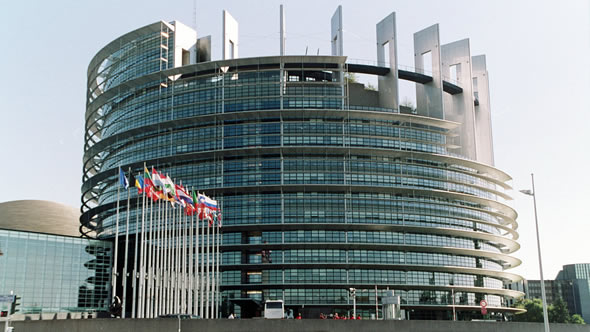Brussels – ESI at workshop on human rights sanctions

ESI's Senior Analyst Alexandra Stiglmayer participated in a workshop on EU human rights sanctions organised by the Greens group in the European Parliament. She said ESI fully supports the establishment of such a sanctions regime as it would make the EU's commitment to human rights more visible and, once operational, educate the public about the violations that the EU considers unacceptable.
The workshop brought together Green MEPs including Heidi Hautala, Barbara Lochbihler and Judith Sergentini; experts including Clara Portela (University of Valencia) and Christina Eckes (University of Amsterdam); a Finnish delegation to provide the Council perspective; and Tinatin Tsertsvadze from the International Partnership for Human Rights representing the human rights NGO community.
Alexandra said the sanctions regime should focus on grave human rights violations such as torture, political imprisonment and extra-judicial killings. The Council should refrain from declaring sanctions (entry bans and possibly asset freezes too) against too many individuals as each listing will have to be communicated strongly and widely to have an effect. She also mentioned that it is very important to ensure due process and gather sufficient evidence since individuals can ask the General Court of the EU to overturn listings. The Council has lost many cases due to lack of evidence.
Alexandra suggested the establishment of an independent commission that would receive and screen nominations for sanctions from victims, family members, lawyers, NGOs, governments and other organisations; make sure that they represent strong cases in terms of evidence and message; and make the final selection public with an appeal to the Council, as well as individual countries inside and outside the EU, to impose entry bans.
Following a Dutch initiative last year, the Council is currently discussing whether to set up a human rights sanctions regime and which form it could take. Questions it examines include which human rights violations to target, which type of offenders to go after (state actors or also non-state actors / actual perpetrators, those directly responsible, those politically responsible), how to make such a sanction regime complementary to country-specific EU sanctions regimes and to EU policies, how to obtain the necessary evidence, which evidence to look for (open source or also classified information) and which legal base to use.
The European Parliament is planning to adopt a resolution on an EU human rights sanctions regime in March 2019.
- ESI newsletter: Red Lines, Rotten Apples and human rights in 2019 (19 November 2018)
- ESI, Norwegian Helsinki Committee, Dutch MPs Martijn van Helvert (CDA), Pieter Omtzigt (CDA), Sjoerd Sjoerdsma (D66): The Power of Focus. Proposal for a European Human Rights Entry Ban Commission (14 November 2018)
